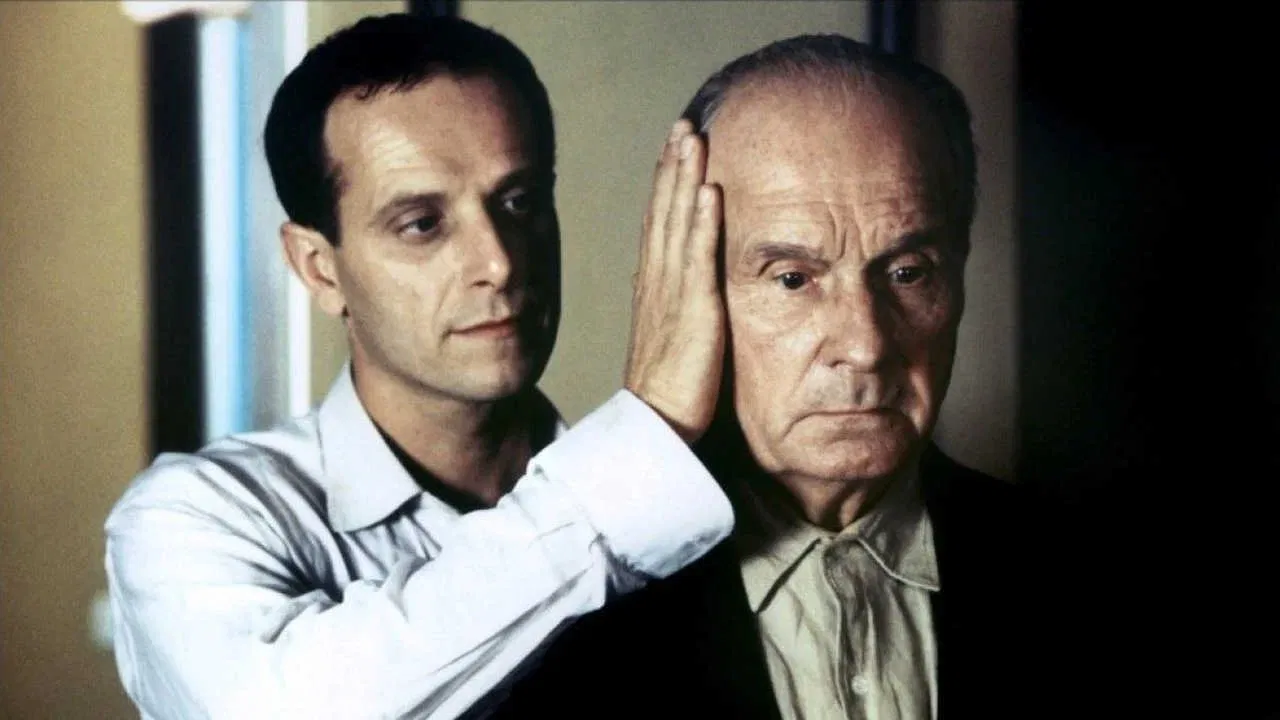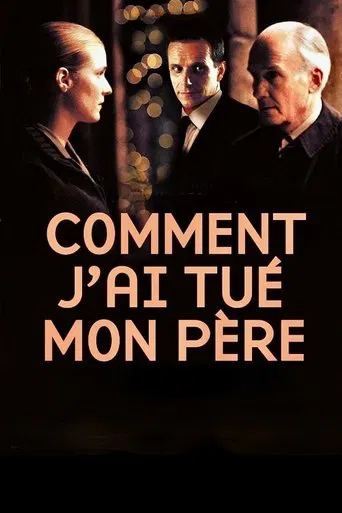

In 1997, Anne Fontaine made an idiosyncratic film named "Nettoyage à Sec" in which a mysterious young man, Loïc shattered the upstart world of a couple of dry cleaners. Miou-Miou acted the woman while Charles Berling was her husband. Four years later, the female filmmaker finds again her main actor for a very similar role and a film which resembles its 1997 companion.Here, the disruptive element isn't a young man but an elderly one acted by Michel Bouquet in a mind-boggling performance. After many years spent in research in Africa, he unexpectedly resurfaces in France to pay a visit to his sons. Berling is a doctor who has everything to be happy: a private hospital that works well, a lascivious mansion and a lovely spouse (Natacha Régnier) and he even saved from distress his brother whom he hired as his chauffeur. Is this posh universe serendipitous? Bouquet's presence will reveal the other side of this lush scenery as well as many things about his past, Berling's and his brother's. A good proportion of these secrets have something eerie and are likely to explain the current situation.As soon as Bouquet arrives, Anne Fontaine exudes an unnerving climate and keeps a low-key tonality to better capture a high disquiet. Rather than to deliver banal explanations that would have rushed the film towards miscarriage, she prefers to call upon the viewer's imagination and to let the unsaid prevail to interpret the numerous zones of shadow and ambiguity the characters have deep down inside them. What also cements her talent is that she eschews a good number of easy moments in which the characters' reactions would have been so predictable. Distance is her key word to shoot her characters and she sends away the father and his son without pronouncing in favor of either even if she has an ounce of sympathy at the tail end when they feel lost.Once again, Michel Bouquet's acute look and ubiquity are to be praised. He just has to pronounce a cue with his hoarse voice to fill one sequence with intensity. Berling and Régnier are up to scratch him. With Marion Vernoux and a few other ones, Anne Fontaine may be the finest French female filmmaker of these last years. Perhaps one will just regret this detail: Bouquet sees his son again when the latter is at the peak of his success and invites the whole community at his home. This trick has been used many times before.
... View More'Comment J'ai Tu Mon Pere' is the story of an apparently untroubled man whose control over his own life is threatened by the return of his difficult long-lost father. It's also one of those typically French films where everyone is beautiful and the drama proceeds by the subtlest of inflexion. And I find myself more willing to tolerate the first fault than I would be in an American film, partly because the characters are truly beautiful (in Hollyowood films they are often just healthy), and partly because of the second virtue. That is to say, the acting, script, cinematography and music are all superb, they bring a pained (and changing) life to this story where (superficially) nothing happens. It's true that you probably won't like this film if you do like the latest blockbuster; but the loss will all yours.
... View MoreThis is a film whose title i find highly significant. It creates a tension throughout all the action which i find highly integral to the significance of the piece. The casting, however, i found cliché. The 'rich yet forlorn' wife of Jean-Luc is predictably docile looking. Beautiful she is, yes, and aristocratic in movement, also, but she is exactly what one expects. Equally, Jean-Luc's lover, who is more Mediterranean looking, with more spirit and with a more voluptuous body, is also the archetypal affair. Why, in 2001 are we still type-casting? However, I find Jean-Luc immaculately chosen, with the touch of 'froideur' in his eyes that hints at a depth in the character, and also, an 'un-depth' for it is very difficult to penetrate his often emotionless actions. Not a film that i would say was beautifully shot...i don't find the photography breathtaking, but it is a perfect french thriller: classy, subtle and psychologically deep.
... View MoreThis superb French film is at times so closed and contained, in spite of several outdoor scenes, that at times it comes close to being claustrophobic. This isn't a criticism;the same could be said of some of Bergman's great films. But, likes some of Bergman's films, its intensity can be overwhelming. I won't reveal much of the plot, but suffice it to say that it seems to be saying that, no matter what our achievements, for many if not most people, life is largely a matter of surviving, that is, surviving the damage inflicted in the early years, and minimizing the amount if damage we inflict on others. A masterful and painful film. 9/10
... View More